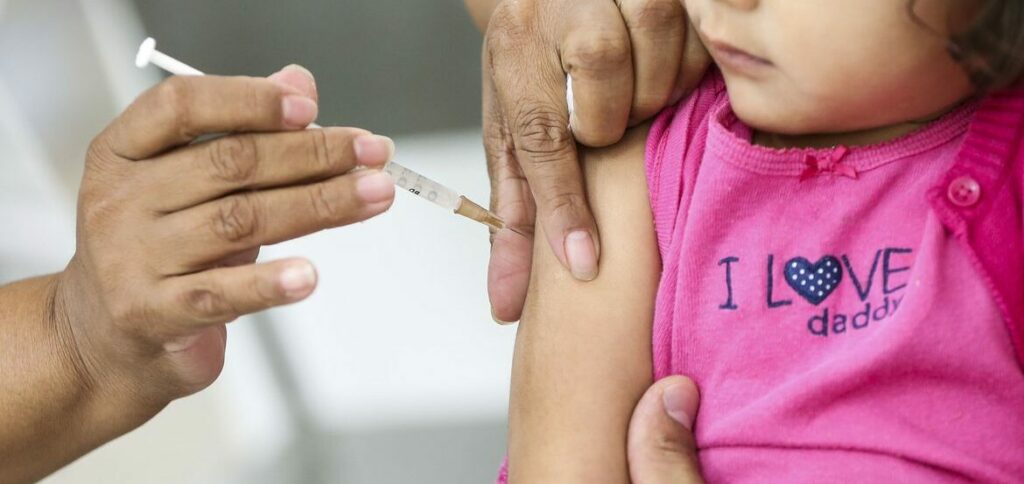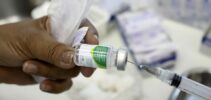Although we are returning to normality in terms of social interaction before the Covid-19 pandemic, the virus and its variants continue to circulate and claim fatalities. In smaller numbers, of course, also due to the vaccination of the majority of the population in Brazil.
ADVERTISING
But positivity for coronavirus continues to grow, as shown in the latest survey by the All for Health Institute:
The importance of complete vaccination
“People have completed the vaccination cycle, taking only the two primary doses of the vaccine against Covid-19, but we recommend that the entire population tome also additional booster doses. The vaccination cycle that we consider ideal to guarantee patient protection includes all doses: the initial two and the booster doses”, emphasizes infectious disease specialist Emy Akiyama Gouveia, from Hospital Israelita Albert Einstein.
A person who does not complete the vaccination cycle, in addition to putting themselves at risk (because they do not have the protection considered ideal), also contributes to the virus continuing to circulate and mutate frequently.
ADVERTISING
The increase in mutations gives rise to new variants, some of which are irrelevant, but others may become stronger and cause important impacts on public health, with an increase in cases, disease severity, hospitalizations or mortality.
This happens because months after vaccination there is a natural drop in the antibodies that the body produced induced by the immunizing agent and the person can become infected even if vaccinated (but in a milder and even asymptomatic way) and the virus can trigger new waves of infection (which is why there was a need of booster dose applications).
Examples around the world
An example of this vaccine escape occurred with the delta variant of the coronavirus, discovered in India.
ADVERTISING
It was resistant to the vaccines available at the time, causing significant waves of contamination with serious cases, hospitalizations and deaths.
Another example was the emergence of the omicron variant, which also caused new spikes in transmission and contamination and once again overloaded the health system with hospitalizations due to the disease.
Why do outbreaks occur?
These outbreaks happen because when coming into contact with an organism that is not fully immunized, the virus gains strength and continues to be transmitted. Therefore, the more individuals are vaccinated, the lower the chances of new variants continuing to emerge, and the closer control of Covid-19 becomes.
ADVERTISING
Therefore, having a complete vaccination cycle against Covid-19 is essential for rreduce contamination and prevent the occurrence of serious cases of the disease, which also reduces mortality rates around the world.
The main objective of the vaccine is to make the body acquire a type of ''immunological memory'', introducing the pathogenic agent (in this case, the coronavirus) to stimulate the body to generate antibodies that react to combat the “invader”.
See who is eligible to be vaccinated with the monovalent dose:
⦁ Children aged six months to 4 years receive the Pfizer vaccine;
*Those between 3 and 4 years old can also receive Coronavac, with reinforcement preferably with Pfizer
⦁ Children aged 5 to 11 receive Pfizer or CoronaVac, as do teenagers aged 12 to 17. The booster is also preferably with Pfizer
⦁ Adults aged 18 to 39 receive Pfizer or CoronaVac
⦁ Adults over 40 years old can receive Pfizer, CoronaVac, AstraZeneca or Janssen
ADVERTISING
See below if your vaccination schedule is complete according to your age group:
⦁ 6 months to 4 years: 3 doses of Pfizer
⦁ 3 to 4 years: 3 doses of Pfizer or 2 doses of CoronaVac plus a booster, preferably from Pfizer
⦁ 5 to 11 years old: 2 doses of Pfizer or 2 of CoronaVac, with a booster preferably from Pfizer
⦁ 12 to 17 years old: 2 doses of Pfizer or 2 of CoronaVac, with a booster preferably from Pfizer
⦁ 18 to 39 years old: 2 doses of Pfizer or 2 of CoronaVac, with a booster preferably from Pfizer
⦁ 40 to 59 years old: 2 doses of Pfizer, CoronaVac, AstraZeneca, Janssen with 2 booster doses, the second preferably with Pfizer
⦁ Elderly people over 70 years old;
⦁ People living in long-term care institutions aged 12 and over and their workers;
⦁ Immunocompromised patientspromethose over 12 years old (those living with HIV, transplant recipients, patients with chronic kidney disease undergoing hemodialysis, patients who have undergone chemotherapy or radiotherapy in the last six months, patients with inborn errors of immunity, among others);
⦁ Indigenous people, riverside dwellers and quilombolas over the age of 12
Important:
To receive the bivalent vaccine (the most current version and composed of the original strain of coronavirus and the omicron variant) you must have completed the first cycle (1st and 2nd) of vaccination.
At this time, only priority groups are being vaccinated with the bivalent vaccine:
Anyone who has not taken at least two doses will have to complete this primary cycle and then take the bivalent vaccine! Stay tuned for the next stages of bivalent vaccination and don't miss your turn!
Source: Einstein Agency





